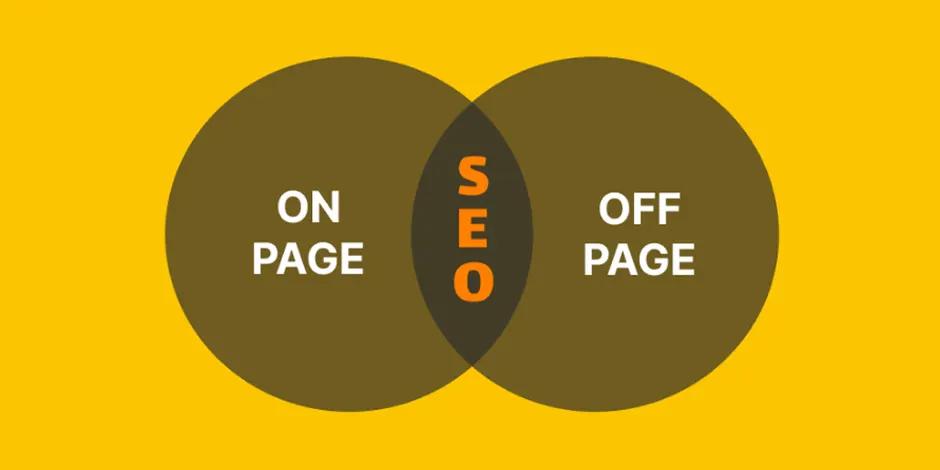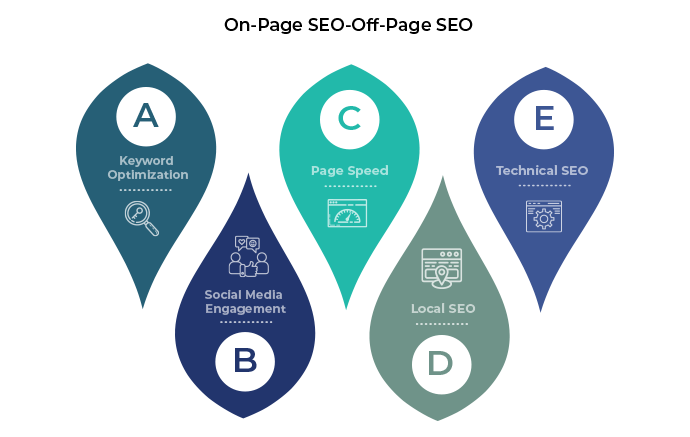
On-Page SEO
On-page SEO refers to the practices and techniques used to optimize individual web pages to improve their search engine ranking and drive organic traffic. It focuses on elements within the website.
Key Elements:
- Content Optimization:
- High-quality, relevant, and engaging content.
- Use of primary and secondary keywords naturally.
- Well-structured headings (H1, H2, etc.) with keywords.
- Meta Tags:
- Title tags: A concise and keyword-rich title.
- Meta descriptions: A summary of the page content that encourages clicks.
- URL Structure:
- SEO-friendly URLs (short, descriptive, and include keywords).
- Internal Linking:
- Linking to other pages on your site to improve navigation and user experience.
- Image Optimization:
- Proper file names and alt tags with keywords.
- Compressed images for faster loading.
- Page Speed:
- Fast-loading web pages.
- Use tools like Google PageSpeed Insights to monitor speed.
- Mobile-Friendliness:
- A responsive design that works seamlessly on all devices.
- Keyword Density:
- Avoid overstuffing keywords; maintain a natural flow.
- User Experience (UX):
- Easy navigation, low bounce rate, and high dwell time.

Off-Page SEO
Off-page SEO focuses on actions taken outside your website to impact its visibility and ranking. It involves building trust, authority, and credibility through external sources.
Key Elements:
- Backlink Building:
- Earning high-quality backlinks from authoritative and relevant websites.
- Avoid spammy or low-quality links.
- Social Media Marketing:
- Sharing content on platforms like Facebook, Instagram, and LinkedIn to drive traffic and increase visibility.
- Guest Blogging:
- Writing articles for other websites in exchange for backlinks to your site.
- Influencer Outreach:
- Collaborating with influencers or industry experts to promote your website or content.
- Forum and Community Engagement:
- Participating in relevant forums like Quora, Reddit, or niche-specific communities.
- Directory Submissions:
- Submitting your website to high-quality directories for visibility.
- Local SEO:
- Registering with Google My Business and optimizing your profile for local searches.
- Brand Mentions:
- Getting your brand mentioned (linked or unlinked) on reputable sites.
- Content Sharing:
- Distributing infographics, videos, or other shareable content to increase reach.
Key Differences:
| Feature | On-Page SEO | Off-Page SEO |
|---|---|---|
| Focus | Optimizing elements on the website | Building authority through external links and promotion |
| Control | Direct control over the website | Limited control over external factors |
| Primary Techniques | Content, meta tags, keywords | Backlinks, social media, outreach |
| Objective | Improve relevancy and structure | Boost trust, authority, and reach |
Both on-page and off-page SEO are essential for a successful SEO strategy. While on-page SEO lays the foundation for search engine visibility, off-page SEO helps to establish the site’s authority and reputation.

